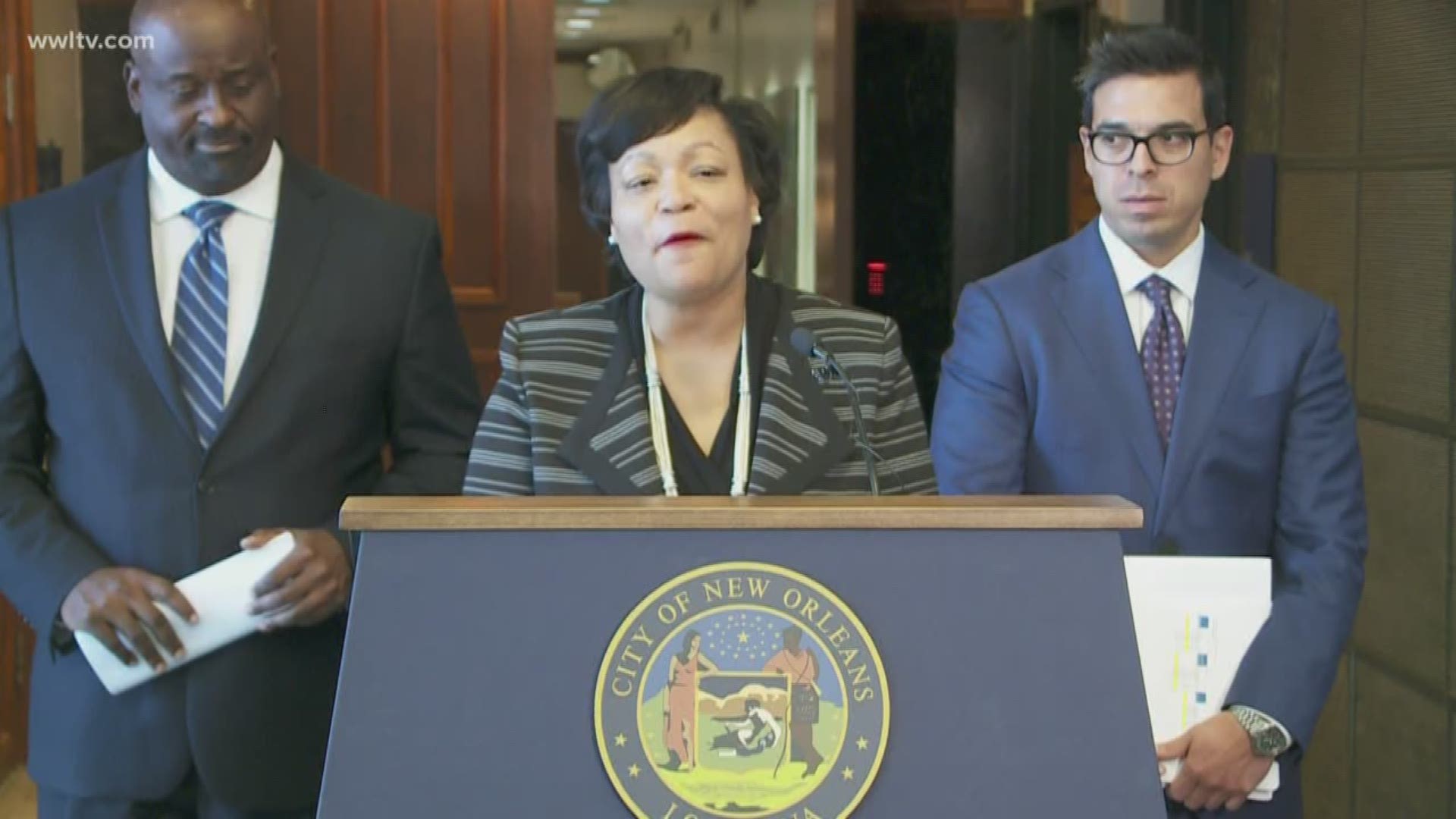NEW ORLEANS — The city of New Orleans has increased its credit rating from A3 to A2, Mayor LaToya Cantrell announced Tuesday. Here's what that means:
Cities (such as New Orleans) issue bonds to pay for infrastructure projects such as road repairs, school development and airport construction. The credit rating is designed to figure out how likely the city is to pay that bond back, which is similar to how a credit rating works for you or a business.
Gilbert Montano, who is in charge of balancing the city's budget as its chief administrative officer, pointed out the similarities during the press conference.
"It's technical and it's complicated, but at the end of the day it's really our credit rating for the city," he said. "For the average person, they know how important (a) credit score is when they go to buy things, when they go to finance things."
Three agencies regulate these municipal bond ratings: Moody's Investors Service, S&P Global and Fitch Ratings. Moody's is the one in charge of figuring out New Orleans' rating.
"A third-party validator, the market, decided that the city's financial plan is of a type or nature to give us an improvement on our rating," New Orleans' chief financial officer, Norman White, said.
That means Moody's evaluates the city's economy, debt structure and several other factors to determine if there is any change to the trustworthiness of its bonds.
Which brings us to the bump from A3 to A2. According to Cantrell, the city hasn't had a credit bump since 2010.
A3 and A2 are both considered "high quality" grades, meaning the city's bonds have lower interest rates.
"It allows us more than ever, in regards to our credit rating, to leverage our bonding capacity," Cantrell said.
Basically, it'll be easier for the city's department of public works to pay for projects throughout the city. For the average resident, it may sound technical and far off. And it might change nothing. But it could also make it easier for the city to pave over potholes, or to clean catch basins.
"These are the key elements," Montano said. "Not always the sexiest part of a city's organization, but the financial stability in the organization as a whole ... is vital for the sustainability and the existence of the city."

